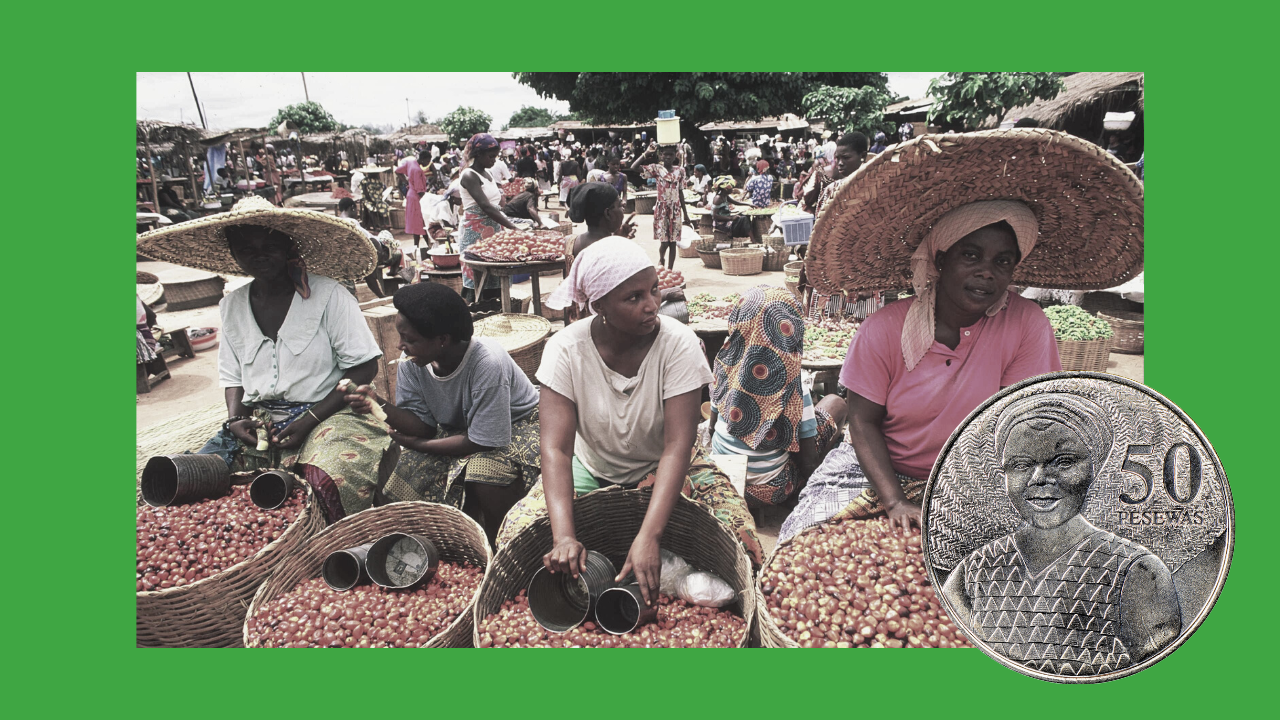Women Entrepreneurs Funded Ghana’s Independence

The struggle for Ghanaian independence, like many political issues, was necessarily also an issue of economic power. Independence campaigners needed resources to run for office, and eventually garner support from ordinary Ghanaians for the cause. As Kwame Nkrumah wrote in his autobiography, women members of the CPP were instrumental in funding and organising the party. Many of these women were successful traders, largely in urban markets.
One such woman, Agnes Oforiwa Tagoe-Quarcoopome, was a textile trader and a friend to Nkrumah. She was born in 1913, became a trader in the 20s, and by the 40s had shops in Makola and Okaishie. Tagoe-Quarcoopome hosted Nkrumah when he first returned to Ghana, and further supported him when he formed the party in 1949. Not only did she contribute funds personally, but she organised other market women and raised money from them too. Their monetary and political support was an essential part of securing Ghanaians’ right to self-determination.
You may know Rebecca Naa Dedei Aryeetey as the market woman whose face is on our 50 pesewa coin today. You may also know this influential activist as Ashikishan, so-named because she was a major flour trader. She too used her financial success to finance the CPP, and held women’s meetings in her own home. Though she died tragically, she lived a good life. She used her personal success for the benefit of all Ghanaians, and made space for women to shape our new nation.
Many entrepreneurial women, named in our history and unnamed, played a vital role in funding our independence movement. Today, Ghanaian women continue to use enterprise to support themselves, build wealth for their families and develop their communities.
.




